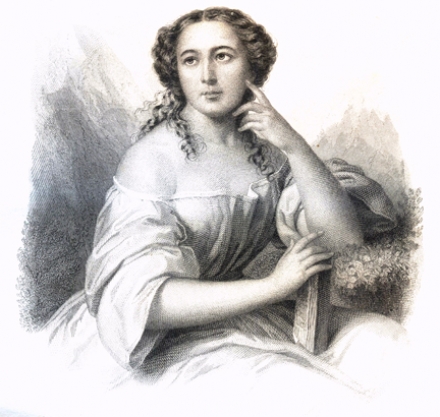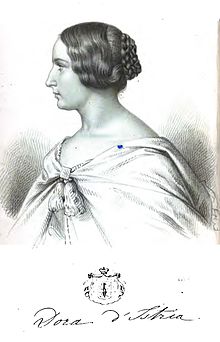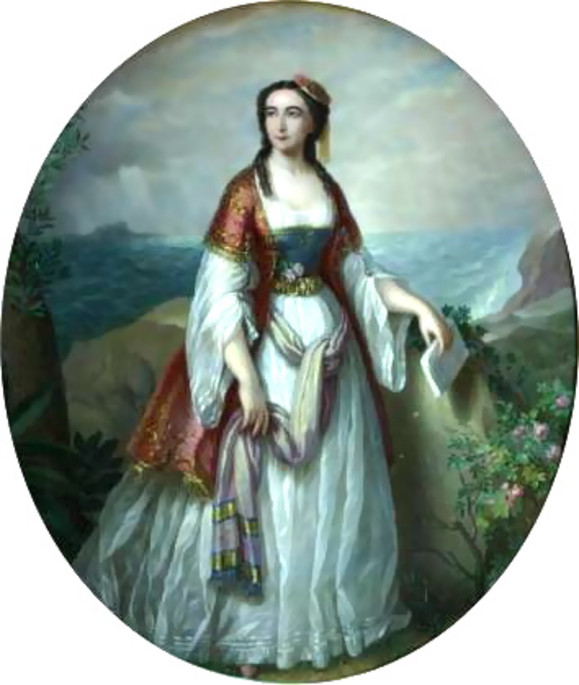Elena Ghica was born in Bucharest on 3 February 1828, as the daughter of the Governor Dimitrie Ghica (descendant of the old rulers) and Catherine Ghica.
Since childhood she was shining through her intelligence and talent, being considered a prodigy child. At only 10 years old she knew nine languages and when she was 14, she translated Homer's Iliad from the original German text. At 16 years old she was taking part in an exhibition of figurative art in Dresden.
She studied in Dresden and Vienna, and at 21 years she married the Russian prince Alexander Kolotov Massalski and moved to St. Petersburg, where she astonished the whole court with her talent and knowledge. During the Crimean War she has expressed her sympathy for the French and English culture, which has drawn sharp criticism from the gubernatorial house.


Because of the despotism promoted by the gubernatorial family, she left her husband and settled in Switzerland, where she began mountaineering. Due to her ambitious nature, in 1855 she climbed the Moench peak of the Swiss Alps, staking the tricolor flag embroidered with the name of her home country, Romania. In 1860, she climbed Mont Blanc fixing a tricolor flag embroidered by her mother.
After these amazing experiences for a woman of that time, she was devoted to literature, publishing under the pseudonym Dora d'Istria. She wrote and published in six languages, which she knew perfectly: French, Italian, Greek, Russian, German and English. She was concerned, in particular, for the Romanian traditions, especially for the folklore transmitted by the folk rhapsodists, whom he called the troubadours of the Romanian people.
She was known and recognized worldwide not only for her literary merits, but also for her feminist ideas, about she wrote very much. She was a revolutionary spirit, preoccupied by politics and social, struggling for a better life in Balkans. She held an extensive correspondence with the Italian revolutionary Giuseppe Garibaldi, to whom he proposed, under the reform concepts of those times, a federation of independent states in the Balkans.
The fascinating woman died on November 17, 1888, at her home in Florence, where she spent the last years, leaving behind a rich literary heritage, but also a spiritual aura of a woman who has exceeded the epoch and became almost legendary.



















